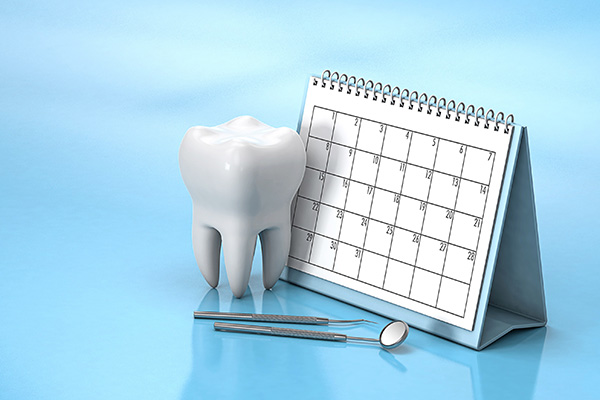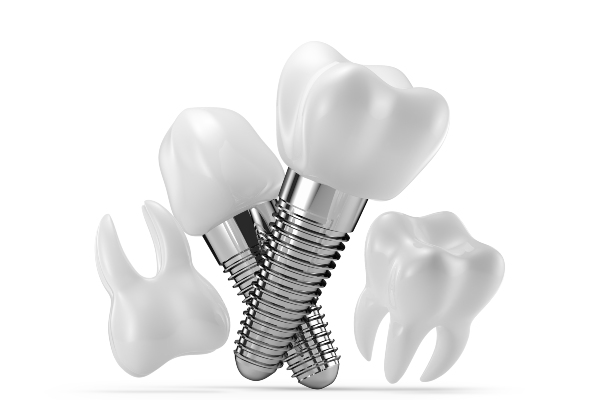Do I Need a Referral for Endodontic Treatment?

Root canal treatment, or endodontic treatment, can be done by both a general dentist and an endodontist. As the name suggests, endodontists are specialist dentists that treat problems affecting the inner tooth. This makes them more than qualified to perform all sorts of procedures on the inner tooth, including a root canal.
And yet, many general dentists also perform root canals, which begs the question, when should a general dentist perform a root canal and when should you, as a patient, get a referral to see an endodontist?
The answer comes as we cover a few basics.
What is root canal treatment?
To put it simply, a root canal is a dental procedure that removes dead or dying tissue in the inner tooth, while keeping the outer tooth intact. The point of endodontic treatment is to treat a tooth that is too far gone for other kinds of treatment. A root canal allows a patient to keep the outer part of their tooth, as opposed to having the tooth extracted.
This is a good thing since the patient is still able to smile and chew with the treated tooth. The tooth also keeps the rest of the person's teeth from shifting, like they would if it were extracted. So a root canal is a great way for a person to avoid the problems that come with a missing tooth, including expensive tooth replacement treatments.
What are the signs that a patient needs endodontic treatment?
Although it can be painless and sometimes, hard to notice, a dead or dying tooth often comes with symptoms that are hard to miss, such as:
- Tooth discoloration behind the enamel that ends up looking like a dark shadow in the tooth
- Excruciating pain if the dead or dying tooth is because of an infection
- If the dead tooth is caused by an infection, a person may notice a bad smell coming from the tooth
- Pus coming out of the tooth due to infection
Anyone who notices these symptoms should see a dentist immediately. Based on their findings, the dentist will either treat the tooth themselves or refer the patient to a specialist.
When does a patient need a referral?
A general dentist may choose to perform a simple or routine root canal. This implies that there are situations that will need the intervention of a specialist. Situations like:
- A general dentist that chooses to refer all endodontic treatments to an endodontist
- A patient that needs a second root canal on the same tooth after the first root canal failed
- A person with complicated tooth anatomy that needs treatment from a specialist. Complicated tooth anatomy is a common reason why root canals fail the first time around
- An insurer that requires that patients get a referral before they see an endodontist
A skilled dentist will guide you through treatment for your problem tooth
The role of a dentist is to make sure their patients get the highest level of care. For this reason, they will treat what they can and call in a specialist for matters that require their expertise.
Call our Bryan clinic to set up an appointment and get your problematic tooth treated, once and for all. Our endodontist has lots of experience performing root canals.
Let's get started…
Request an appointment here: http://www.riversdentistry.com or call Rivers Family Dentistry at (979) 710-2216 for an appointment in our Bryan office.
Check out what others are saying about our services on Yelp: Read our Yelp reviews.
Related Posts
Seeing your family dentist for regular dental exams can maintain your oral health for many years. Bringing your family with you can extend this benefit to them. Understanding why you must set dental checkups will enable you to maintain a healthy smile for years. Here are the reasons to see your family dentist for regular…
If you have lost one or more of your teeth, talking to an implant dentist might provide the tooth replacement solution you are looking for. Dental implants are one of the most popular ways to replace missing teeth. Whether you are missing one tooth or all of your teeth, chances are there is an implant…
A family dentist makes getting the dental care you and your loved ones need a lot more convenient. Good oral health is not only about keeping your smile looking pearly white; it is also about protecting yourself against bacteria and the infections they bring.A family dentist is equipped to handle all of your loved ones'…
Dental implants are durable, natural-looking replacements for missing teeth. An implant dentist may recommend a single implant or multiple implants spaced throughout the mouth depending on how many teeth are missing and where. This blog will discuss when single or multiple implants are recommended, as well as the other tooth replacement options that can bolster…


